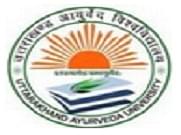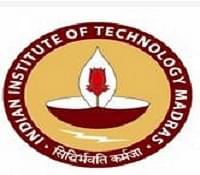Introduction about BA (geo. hons.)
A Bachelor of Arts
in Geography (Hons.) at the best affordable college in India , commonly
abbreviated as BA (Geo. Hons.), is an undergraduate degree program focused on
the study of Earth's landscapes, environments, and the relationships between
people and their surroundings. It's a specialized program within the broader
field of geography, which combines elements of physical, human, and
environmental geography.
Students pursuing a
BA (Geo. Hons.) typically delve into various aspects of geography, including:
![]() Physical Geography: This branch deals with natural phenomena
such as climate, landforms, vegetation, and ecosystems. Students explore
processes shaping the Earth's surface, such as erosion, weathering, and plate
tectonics.
Physical Geography: This branch deals with natural phenomena
such as climate, landforms, vegetation, and ecosystems. Students explore
processes shaping the Earth's surface, such as erosion, weathering, and plate
tectonics.
![]() Human Geography: This field examines the interactions
between human societies and their environments. Topics include population
dynamics, urbanization, cultural landscapes, economic activities, and political
geography.
Human Geography: This field examines the interactions
between human societies and their environments. Topics include population
dynamics, urbanization, cultural landscapes, economic activities, and political
geography.
![]() Environmental Geography: Focuses on the relationship between humans
and their natural surroundings, with an emphasis on environmental conservation,
sustainability, and the impact of human activities on ecosystems.
Environmental Geography: Focuses on the relationship between humans
and their natural surroundings, with an emphasis on environmental conservation,
sustainability, and the impact of human activities on ecosystems.
![]() Geographical Information Systems (GIS)
and Remote Sensing:
Students often receive training in GIS, which involves the analysis and
visualization of spatial data, and remote sensing, which utilizes satellite and
aerial imagery for mapping and monitoring Earth's surface.
Geographical Information Systems (GIS)
and Remote Sensing:
Students often receive training in GIS, which involves the analysis and
visualization of spatial data, and remote sensing, which utilizes satellite and
aerial imagery for mapping and monitoring Earth's surface.
BA (Geo. Hons.)
programs typically incorporate a combination of lectures, seminars, fieldwork,
and laboratory exercises to provide students with a comprehensive understanding
of geographical concepts and methodologies. Depending on the institution, students
may have the opportunity to specialize in specific areas of geography, such as
climatology, urban studies, or geopolitics.
Upon completion of
the program, graduates can pursue diverse career paths in fields such as urban
planning, environmental management, geographic information systems (GIS),
cartography, education, research, and consultancy. Additionally, the analytical
and critical thinking skills developed during the BA (Geo. Hons.) program are
highly transferable, making graduates attractive candidates for roles in
various sectors requiring spatial analysis and problem-solving abilities.
What is eligibility for BA (geo. hons.)?
Eligibility
criteria for a Bachelor of Arts in Geography (Hons.) can vary depending on the
institution offering the program and the country in which it is located.
However, there are some common requirements typically seen across many
universities:
a)
Educational
Qualifications: Most
universities require applicants to have completed their secondary education or
its equivalent, such as high school or A-levels (in the UK system). Specific
subject requirements may vary, but a background in geography, social sciences,
or natural sciences is often preferred or recommended.
b)
Academic
Performance: Applicants are
usually expected to have a strong academic record, particularly in relevant
subjects such as geography, environmental science, biology, mathematics, or
social studies. Minimum grade requirements may be specified by the institution.
c)
Language
Proficiency: For
international students or in countries where English is not the primary
language of instruction, proof of English language proficiency through
standardized tests like the TOEFL or IELTS may be required.
d)
Entrance
Exams: Some universities
may require applicants to take entrance exams specific to their geography
program or the broader field of social sciences.
e)
Personal
Statement or Essay:
Applicants may need to submit a personal statement or essay explaining their
interest in geography, academic goals, and relevant experiences or
achievements.
f)
Letters
of Recommendation: Some
institutions may request letters of recommendation from teachers or academic
mentors who can attest to the applicant's suitability for the program.
g)
Interview: In some cases, applicants may be required
to attend an interview as part of the admissions process, allowing the
university to assess their motivation, communication skills, and academic
potential.
It's essential for
prospective students to carefully review the specific eligibility requirements
outlined by the universities they are interested in applying to, as these
requirements can vary significantly from one institution to another.
Additionally, applicants should consider factors such as application deadlines,
required supporting documents, and any additional admission criteria specified
by the university.
What is admission process to take admission at BA
(geo. hons.)?
The admission
process at the best bachelor of Arts in Geography (Hons.) university typically involves several
steps, which may vary slightly depending on the university and country. Here's
a general overview of what the process might entail:
1.
Research
and Choosing Universities:
Prospective students should research universities offering BA (Geo. Hons.)
programs and identify those that best match their academic interests, career
goals, and personal preferences. Factors to consider may include program
curriculum, faculty expertise, university reputation, location, facilities, and
extracurricular opportunities.
2.
Reviewing
Admission Requirements:
Applicants should carefully review the admission requirements specified by each
university, including academic qualifications, language proficiency tests (if
applicable), entrance exams (if required), personal statements or essays,
letters of recommendation, and any other supporting documents.
3.
Application
Submission: Once applicants
have identified the universities they wish to apply to and ensured they meet
the eligibility criteria, they must submit their applications through the
university's online application portal or by mail, following the instructions
provided by the institution. Applications typically require completion of a
form and submission of all required documents before the specified deadline.
4.
Entrance
Exams (if applicable): Some
universities may require applicants to take entrance exams, either general
standardized tests or specific exams related to geography or social sciences.
These exams assess applicants' academic aptitude and subject knowledge.
5.
Personal
Statement or Essay: Many
universities require applicants to submit a personal statement or essay
explaining their motivation for studying geography, academic interests, career
goals, relevant experiences, and any other information they believe is
pertinent to their application. This is an opportunity for applicants to
showcase their passion for the subject and demonstrate their suitability for
the program.
6.
Letters
of Recommendation: Some
universities may request letters of recommendation from teachers, professors,
or other individuals who can provide insight into the applicant's academic
abilities, character, and potential for success in the program.
7.
Interview
(if applicable): In some
cases, universities may conduct interviews with applicants as part of the
admissions process. The interview allows the university to assess applicants'
motivation, communication skills, and suitability for the program.
8.
Admission
Decision: After reviewing
all applications, universities will notify applicants of their admission
decision, typically via email or postal mail. Accepted applicants will receive
an offer of admission, including details such as program start date, tuition
fees, and any conditions they must meet before enrolling in the program.
9.
Acceptance
and Enrollment: Accepted
applicants must confirm their acceptance of the offer by the specified deadline
and complete any additional enrollment steps required by the university, such
as paying a deposit or submitting additional documentation. Once all
requirements are fulfilled, students are officially enrolled in the BA (Geo.
Hons.) program and can begin their studies.
It's essential for
prospective students to carefully follow all instructions provided by the
universities they are applying to and ensure that they meet all deadlines and
requirements to increase their chances of admission to their desired program.
What is syllabus of BA (geo. hons.)?
The syllabus for a
Bachelor of Arts in Geography (Hons.) can vary between universities and
countries, but here's a general overview of the typical topics and areas of
study covered in such a program:
·
Introduction
to Geography: An overview
of the discipline of geography, its subfields, methods, and key concepts.
·
Physical
Geography:
·
Geomorphology:
Study of landforms, their origins, and processes shaping the Earth's surface.
·
Climatology:
Examination of climate systems, weather patterns, and global climate change.
·
Biogeography:
Analysis of the distribution of plants and animals on Earth and the factors
influencing their distribution.
·
Human
Geography:
·
Population
Geography: Study of population distribution, migration patterns, and
demographic processes.
·
Economic
Geography: Examination of economic activities, spatial organization of economic
systems, and globalization.
·
Urban
Geography: Analysis of urbanization, urban morphology, and the social,
economic, and environmental dynamics of cities.
·
Cultural
Geography: Exploration of cultural landscapes, cultural diffusion, and the
relationship between culture and environment.
·
Environmental
Geography:
·
Environmental
Management: Principles and strategies for sustainable resource use,
conservation, and environmental policy.
·
Environmental
Impact Assessment: Methods for evaluating the environmental consequences of
human activities and development projects.
·
Natural
Hazards and Disasters: Study of natural hazards, risk assessment, and disaster
management strategies.
·
Geographical
Information Systems (GIS) and Remote Sensing:
·
Introduction
to GIS: Basics of spatial data, map projections, and GIS software.
·
Spatial
Analysis: Techniques for analyzing spatial data, including spatial statistics
and interpolation methods.
·
Remote
Sensing: Principles of remote sensing, interpretation of satellite and aerial
imagery, and applications in geography and environmental studies.
·
Fieldwork
and Research Methods:
·
Field
Techniques: Training in fieldwork methods such as surveying, mapping, and data
collection.
·
Research
Design: Planning and conducting geographic research, including formulating
research questions, collecting data, and analyzing findings.
·
Regional
Geography:
·
Regional
Studies: Examination of geographic regions, their physical, cultural, economic,
and environmental characteristics.
·
Case
Studies: Analysis of specific regions or countries to illustrate geographic
concepts and processes.
·
Elective
Courses:
·
Students
may have the opportunity to choose elective courses based on their interests or
career goals, such as geospatial analysis, transportation geography, political
geography, or environmental policy.
The syllabus may
also include practical components such as laboratory exercises, field trips,
internships, and research projects to provide students with hands-on experience
and practical skills. Additionally, universities may periodically update their
syllabus to reflect advancements in the field of geography and emerging topics
of interest.
What is scope after BA (geo. hons.)?
A Bachelor of Arts
in Geography (Hons.) from the top college in India offers graduates a
wide range of career opportunities across various sectors. The scope after
completing this degree is diverse and can include the following:
ü Urban and Regional Planning: Graduates can work as urban or regional
planners, helping to design and manage cities, towns, and regions to ensure
sustainable development, efficient land use, and improved quality of life.
ü Environmental Management and
Conservation: Opportunities
exist in environmental consulting firms, government agencies, non-profit
organizations, and private companies to work on environmental assessment,
conservation projects, natural resource management, and sustainability
initiatives.
ü Geographic Information Systems (GIS)
and Remote Sensing: With
expertise in GIS and remote sensing, graduates can pursue careers in fields
such as cartography, geospatial analysis, urban mapping, disaster management,
and environmental monitoring in sectors including government, private industry,
research institutions, and NGOs.
ü Transportation and Logistics: Graduates can work in transportation
planning, logistics management, and supply chain analysis, helping to optimize
transportation networks, improve efficiency, and reduce environmental impacts.
ü Education and Research: Some graduates choose to pursue careers in
academia, teaching geography at the secondary or post-secondary level, or
conducting research in academic institutions, think tanks, or research
organizations.
ü Government and Public Policy: Opportunities exist in government agencies
at the local, regional, national, and international levels, where graduates can
work on issues such as land use planning, economic development, environmental
policy, and disaster management.
ü International Development: Graduates may work for international
development organizations, NGOs, or government agencies involved in projects
related to sustainable development, poverty alleviation, climate change
adaptation, and disaster risk reduction in developing countries.
ü Business and Consulting: Geography graduates can find employment in
various sectors, including retail, real estate, marketing, and market research,
where their analytical skills, spatial understanding, and knowledge of
human-environment interactions are valued.
ü Tourism and Recreation: Opportunities exist in the tourism
industry, including ecotourism, adventure tourism, and heritage tourism, where
graduates can work in destination management, tour guiding, or tourism
development planning.
ü Geopolitical Analysis and Intelligence: Some graduates may pursue careers in
geopolitical analysis, international relations, or intelligence analysis,
working for government agencies, research institutes, or private security
firms.
Overall, a BA in
Geography (Hons.) equips graduates with a versatile skill set, including
spatial analysis, critical thinking, research, communication, and
problem-solving skills, making them well-suited for a wide range of careers in
both the public and private sectors. Additionally, continued education through
postgraduate studies or professional certifications can further enhance career
prospects and opportunities for advancement.












